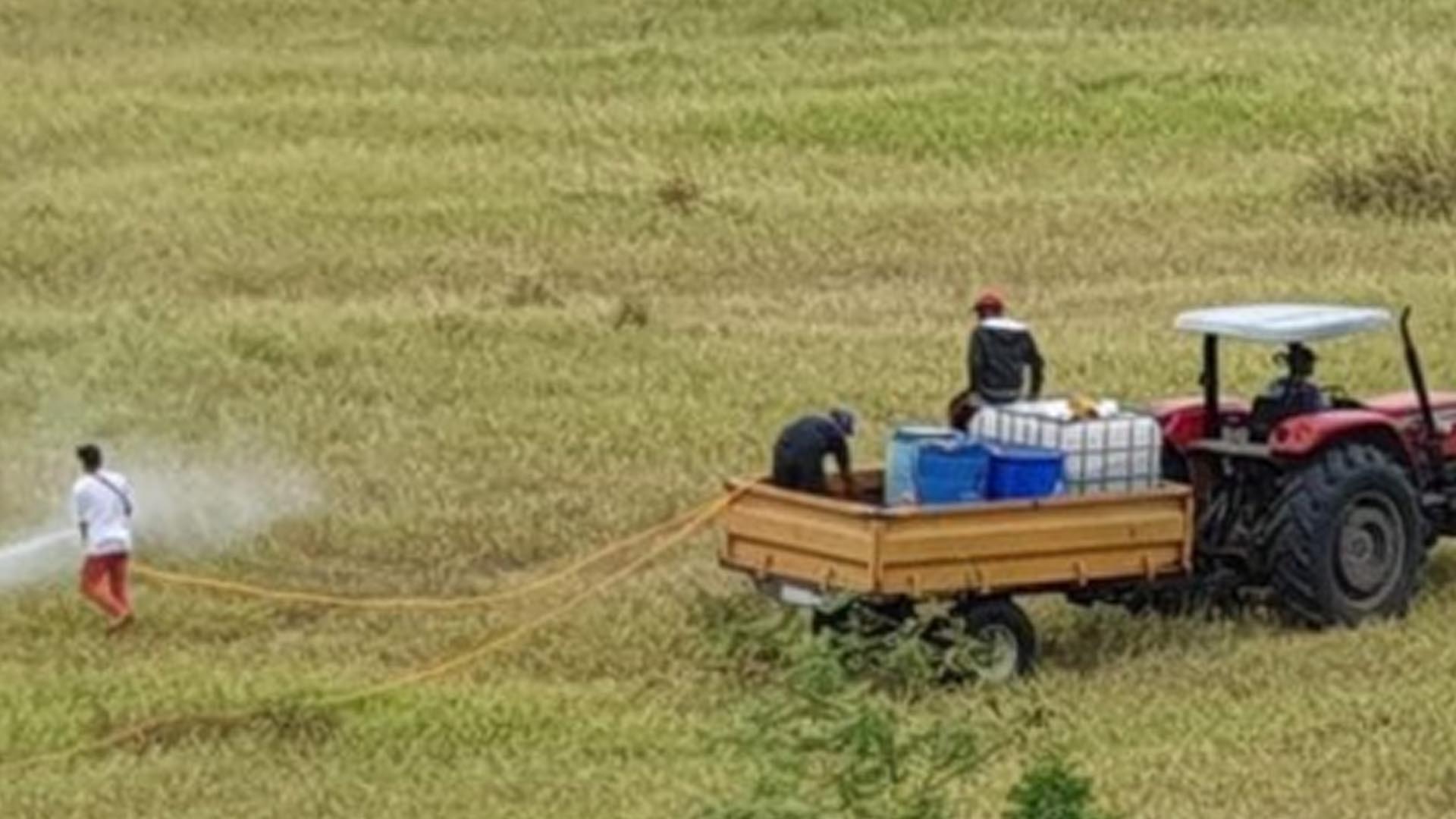The city government has launched containment measures to prevent the possible occurrence of another locust infestation in the area.
Merlinda Donasco, head of the City Agriculture Office (CAO), said Thursday they are currently conducting targeted pesticide spraying activities in an identified breeding area of locusts in a village here.
She said they traced a breeding site in a grassland in Calatao, Barangay Tambler, which is situated near the city international airport.
Since last week, she said they already covered around 87 hectares for the spraying activities in coordination with the barangay council and adjacent communities.
“We’re also tracing and monitoring other possible breeding sites so we can contain them early and prevent their further multiplication,” Donasco said in a radio interview.
The official said they initially monitored the presence of locusts in the area late last month, with the emergence of sellers along the city’s diversion road and the national highway in nearby Silway 7 in Polomolok town, South Cotabato.
She said they immediately surveyed grasslands in the area that are considered as ideal breeding sites and found the presence of hopper swarms in Calatao area.
Donasco said they need to control the population of the locusts early before they could spread to the other areas, especially the airport compound and local farms.
In the past years, several scheduled commercial flights were delayed due to the invasion of locusts into the perimeter and grassy areas of the airport, especially near the runway.
She said locusts breed and multiply fast, with each pod capable of producing 700 to 1,000 eggs.
They mainly feed on green grasses and crops, are “very destructive” and could wipe out an entire corn farm overnight, she said.
Donasco said they documented these in previous infestations, which usually occur every three years in the area.
She said massive locust infestations in the city and the neighboring areas were recorded in 2013 and in 2016, which took one year to contain and stretched to 2017.
The official advised residents to refrain from buying cooked locusts, which is a local delicacy, to avoid possible poisoning.
Although they are using low dosage or less toxic chemicals in their spraying activities, she said it can still contaminate the locusts and make them unsafe for consumption.
She added that they have placed signage in areas covered by the pesticide spraying to warn residents against catching locusts from these sites. (PNA)







